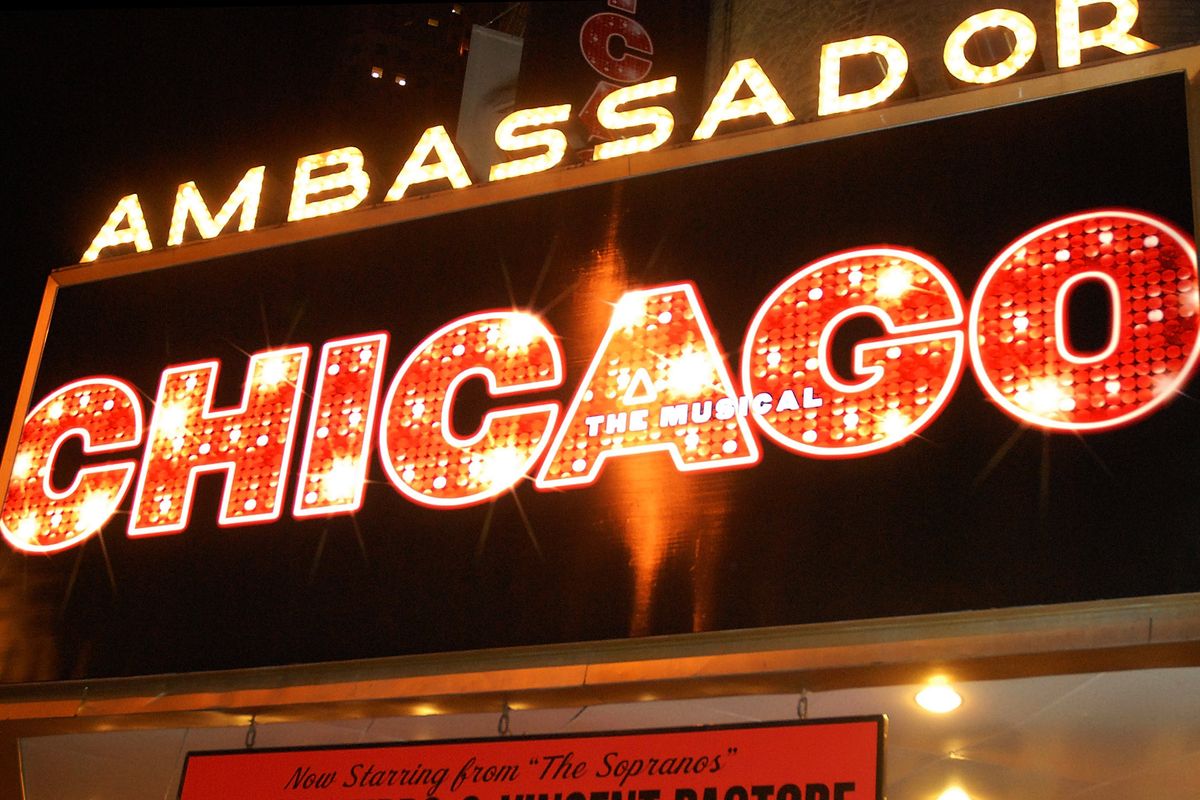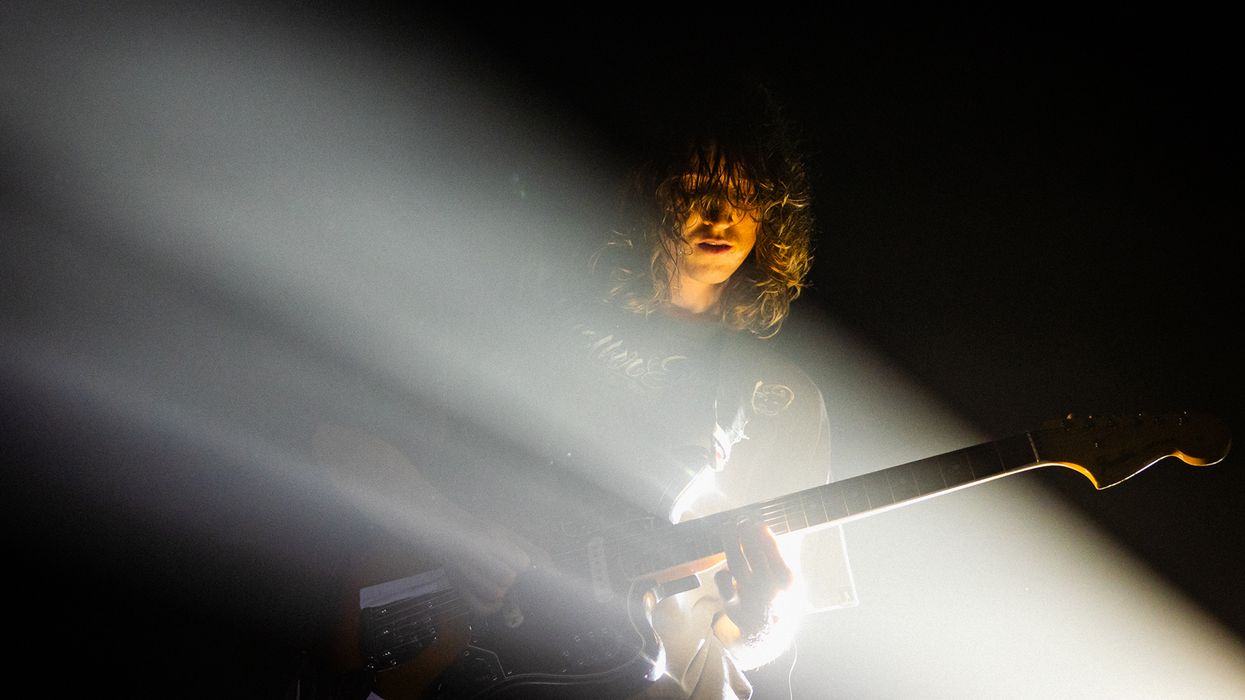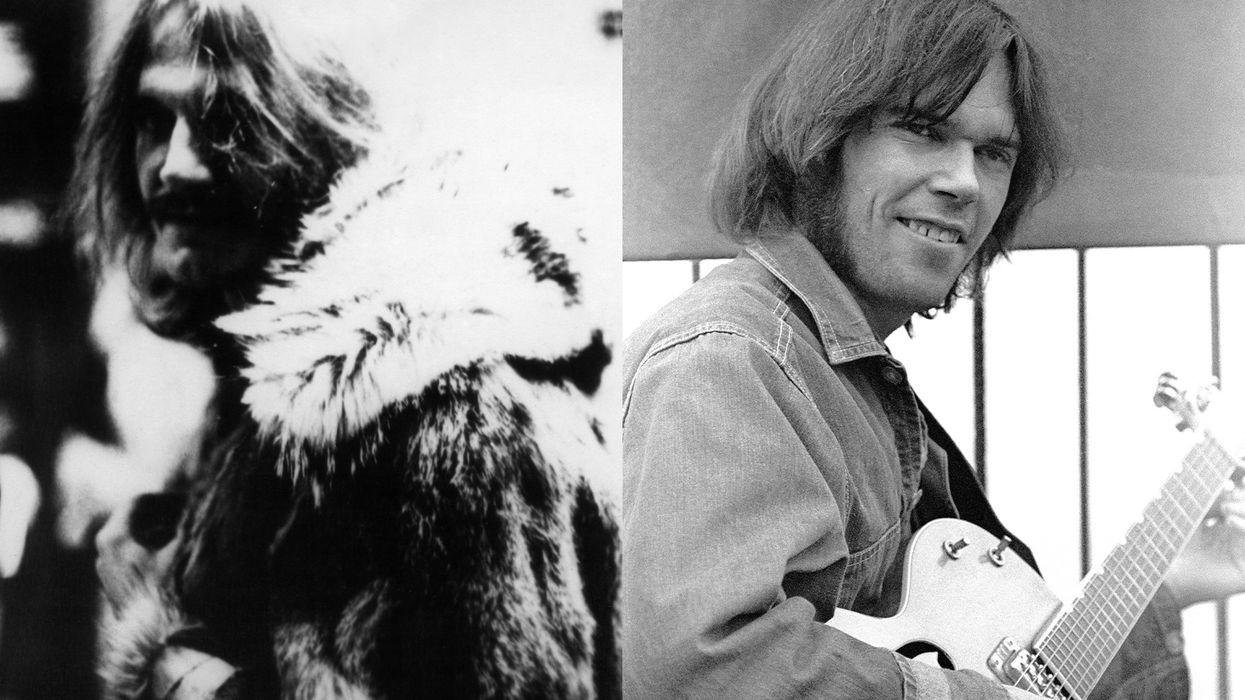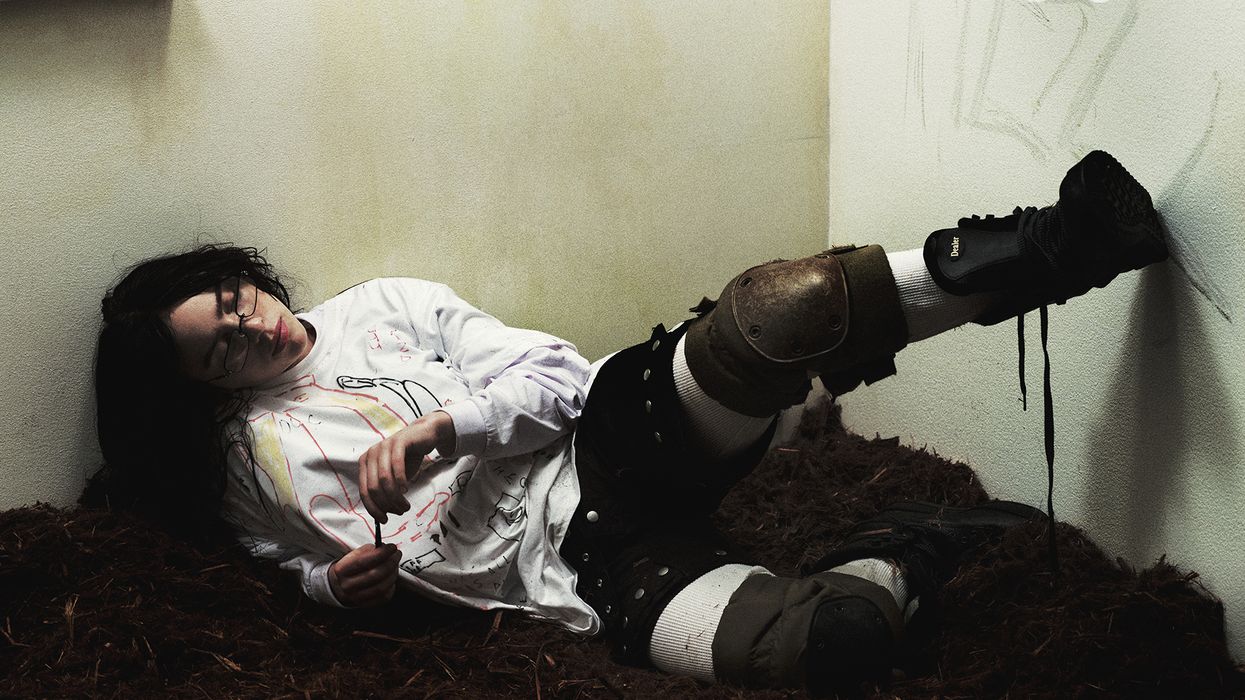In a hazy, smoke-filled theater, dozens of red strings dangle from the ceiling. They’re connected to the backs and hands of reporters, all slumped over in their seats, notebooks in hand. There’s a man in the spotlight, with what appears to be a marionette doll over his knee and another journalist, this one conspiratorially close on his other shoulder. As a chorus begins to sing, the strings move, revealing the crowd of press to be puppets, voices orchestrated toward one common belief: “Oh yes, they both reached for the gun.”
Fans of musical theater might recognize this scene from the film adaptation of Chicago, starring Renée Zellweger, Catherine Zeta-Jones, and Richard Gere. The film charts wannabe vaudeville star Roxie Hart’s story through song, after she murders her lover in cold blood, and attempts to both escape the executioner and launch a nationwide career from inside her jail cell. The 2002 film was a critical success, winning six Oscars, including Best Picture. But on the social media app TikTok, a song from the film, “The Both Reached For The Gun,” has gone from theater-kid darling to the soundtrack of one of the most popular editing trends of all time.
Fan edits, also referred to as fancams, take videos of a popular actor, film, or television series and make a heavily edited clip full of transitions pegged to an emotional backing track. While edits are often meant to simply show how attractive actors are — thirst is king online — edits about films or series go a step further: taking emotional cues from the songs they use to imply a certain context that might not exist or be shown in the original source material. This can result in often incongruous combinations of songs and messages. Take for instance the Taylor Swift Christianity editing craze of 2023, when Christian Swifties began editing videos of Christ on the cross or speaking to his disciples with different songs from Swift playing in the background. Or when some folks started using a track by notorious cult leader Charles Manson to herald a cozy fall vibe.
@jesustaylorsversion Kinda flopping atm #jesustaylorsversion #jesus #jesusedit #jesuschrist #mothermary #christiantiktok #christianity #thebible #taylorswift #ttpd
But what has been fascinating about the “They Both Reached For The Gun” trend is how widespread the trend has become. There’s over 20 thousand edits using the sound on TikTok alone, which doesn’t account for the thousands that have also been posted on X (formerly Twitter) and Tumblr. The idea is simple: editors pick two people who are in conflict and depict them both reaching for a goal. People have made edits with characters of The Bear, Interview With the Vampire, Barbenheimer, House of the Dragon, Hunger Games, Rapunzel, and Mean Girls. Even real-life individuals haven’t escaped it — at least six of the most popular videos — each raking in millions of views and interactions — depict conflicts with real people, like presidential candidates Kamala Harris and Donald Trump, Olivia Rodrigo, and Sabrina Carpenter, and most recently, Olympic gymnasts Simone Biles and Rebeca Andrade.
@disneylover7782 Visit TikTok to discover videos!
@lxviackm_ estou obcecada. #timebrasil #olimpiadas #viralvideo #fyp #rebecaandrade #simonebiles #ginasticaartistica #paris2024
@austroli0 pls dont mute it its not copyright its from the chicago musical please 😓😓😓 #chicago #chicagomusical #theater #challangers #challangersmovie #mikefaist #zendaya #edit #fypp #trend #allcreditsto #chicago #broadway
@zoekeelinf I’ve never edited before but this video had to be made. - #theballadofsongbirdsandsnakes #thehungergames #coriolanussnow #presidentsnow #lucygraybaird #lucygray #katnisseverdeen #katniss #theybothreachedforthegun #books #movie #chicago
Why is this random musical theater song so popular? Hannah Greenstein, a music theorist, said on TikTok that the song “scratches an itch” in people’s brains because it uses popular motions and modulations that imply music reaching a climax, meaning ratcheting up tension and emotion through tempo and repeating sounds. Other fans have expressed their adoration of the trend in simpler terms: it fucks. “This is a cinematic masterpiece,” the official Lionsgate TikTok commented on one Hunger Games edit. “Once I hear this sound I know the edit is about to EAT,” reads another comment on a different clip. It was made on an edit of the animated film The Lorax.
It’s important to note that the reason why the edits work so well is because they completely ignore the actual context of the song — something that often occurs with TikTok trends. In the musical Chicago, ‘They Both Reached For The Gun” is a marionette routine performed by Roxie Hart’s lawyer Billy Flynn (Gere in the 2002 movie). Roxie has already told police she shot her lover in cold blood after she found out he didn’t have the connections to make her a star. But during her trial, Billy concocts a bald-faced lie — they both reached for the gun and it accidentally went off — and then controls the narrative. The edits ignore this entirely, usually depicting two people who are actually reaching for something, rather than lying about it. But it makes for fantastic viewing.













 Photographer: Raphaëlle Sohier / Executive production: Elizabeth Crisante & Amanda Dorenberg / Design: Alex Filipas / Post-production: Bryan Egan/ Headpiece: Tristan Réhel
Photographer: Raphaëlle Sohier / Executive production: Elizabeth Crisante & Amanda Dorenberg / Design: Alex Filipas / Post-production: Bryan Egan/ Headpiece: Tristan Réhel Photo: Raphaëlle Sohier
Photo: Raphaëlle Sohier Photo: Raphaëlle Sohier/ Photo production: Bryan Egan/ Blazer:
Photo: Raphaëlle Sohier/ Photo production: Bryan Egan/ Blazer:  Photo: Raphaëlle Sohier/ Blazer: Vivienne Westwood/ Skirt :
Photo: Raphaëlle Sohier/ Blazer: Vivienne Westwood/ Skirt : 


